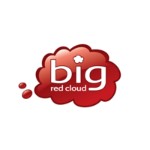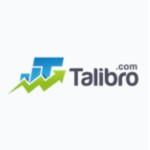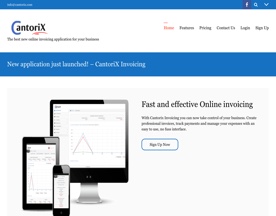Automated accounting streamlines financial tasks, reduces human error, and enables businesses to manage finances more efficiently. Delve into its advantages, tools, and potential future.
Ah, technology. It’s reshaped the way we live, work, and play. From the way we communicate with loved ones to how we order our morning coffee – everything seems to have been touched by the magic wand of digital innovation. But have you ever stopped to think about how technology is reshaping the often-overlooked corners of the business world? I’m talking about those tasks that, while mundane, play a pivotal role in the smooth operation of a company. Yes, you guessed it right. I’m referring to accounting.
For many finance professionals, the word ‘accounting’ conjures up images of endless spreadsheets, piles of receipts, and long hours spent crunching numbers. It’s the kind of task that’s often relegated to the ‘do later’ pile, only to then become a mad scramble at the end of the financial year. But what if I told you there’s a brighter, more efficient, and less headache-inducing future for accounting? Enter the game-changer: automated accounting.

Now, before you envision robots sitting at desks with calculators (though, how cool would that be?), let me clarify. Automated accounting isn’t about replacing the human touch. Instead, it’s about enhancing it. It’s about automation software giving businesses the tools to handle their finances with increased accuracy, efficiency, and insight. Think of it as having a virtual assistant that never sleeps, doesn’t need coffee breaks, and is immune to human error.
In the grand tapestry of financial management, automated accounting is the thread weaving its way through, connecting various tasks and making them more manageable. Whether you’re a small business owner, an entrepreneur, or just someone curious about where the financial world is heading, understanding automated accounting is crucial. It’s not just a buzzword; it’s a transformative force.
In this deep dive, we’ll peel back the layers of automated accounting. We’ll explore its meaning, its implications, and its undeniable advantages. We’ll also delve into the tools that are making waves in this space and address any reservations or questions you might have. So, let’s embark on this journey together, shall we? Prepare to have your perception of accounting turned on its head!
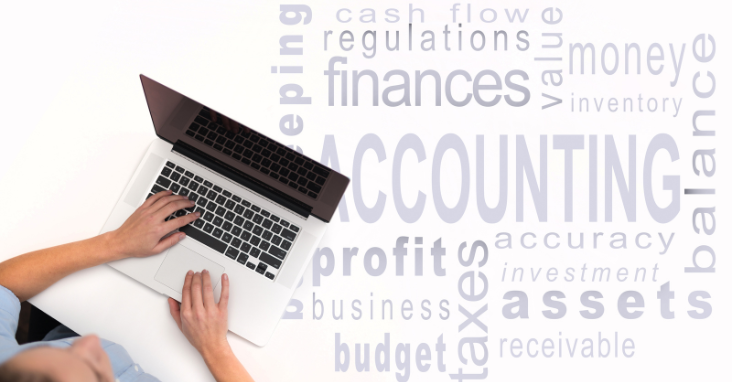
What is Automated Accounting?
At its core, accounting is the meticulous art of recording, classifying invoice processing, and interpreting financial transactions. It’s the backbone of financial clarity, helping businesses understand where their money comes from and where it’s going. But as crucial as it is, traditional accounting can be a time-consuming and error-prone process. This is where automated computerized accounting software comes into the picture.
Imagine you’re trying to assemble a jigsaw puzzle. Traditional accounting is like trying to fit the pieces together by hand, while automated or accounting automation software is like having a machine that knows exactly where each piece goes, placing them perfectly every time. Automated or accounting automation involves, in essence, is the application of technology to carry out accounting tasks with minimal human intervention. It leverages software and algorithms to process financial data, ensuring tasks are executed more rapidly and with greater precision.
But let’s debunk a common myth right away: automated accounting is not about making human accountants obsolete. Far from it! What it does is free up accounting professionals from the grind of manual data entry, reconciliations, and other repetitive tasks. By automating tasks like invoice processing, expense management, purchase order handling, accounts receivable management, and financial reporting, automated accounting eliminates manual data entry, reduces errors, and accelerates crucial financial operations. This means accountants can redirect their focus towards more strategic activities like financial analysis, planning, and advising.
Several elements come together in automated accounting:
- Data Capture: Modern tools can automatically pull in data from bank feeds, invoices, and receipts, eliminating the need for manual data entry.
- Reconciliation: Software can match transactions from different sources, ensuring books are accurate and up-to-date.
- Reporting: Instead of manually creating financial reports, automated systems can generate them at the click of a button, offering insights in real-time.
- Invoicing and Payments: Automated solutions can generate, send, and even follow up on invoices, as well as process payments without the need for human intervention.
The beauty of automated accounting lies in its adaptability. Whether you’re a freelancer juggling multiple clients or a multinational corporation with a complex financial structure, there’s an automated accounting automation solution tailored to your needs. And as technology continues to evolve, so too will the capabilities of automated and accounting services, promising even more efficiency and insight in the future.
Key Points:
- Automated accounting leverages technology to streamline traditional accounting processes.
- It doesn’t replace human accountants but empowers them to focus on strategic tasks.
- From data capture to invoicing, automation enhances accuracy and efficiency.
- Its adaptability ensures it caters to businesses of all sizes and complexities.

Why Should You Consider Automated Accounting?
In today’s fast-paced business environment, staying competitive often boils down to efficiency. How quickly and accurately can you process information, make decisions, and execute tasks? This is especially true in the realm of business’s financial management side. While accounting might not be the most glamorous part of running a business, it’s undeniably one of the most crucial. So, why should you consider transitioning to automated accounting? Let’s break it down.
1. Cost Efficiency:
Money saved is money earned. By automating repetitive tasks, businesses can significantly reduce the hours billed by accountants or the time spent by in-house accounting teams on manual data entry. This not only leads to direct cost savings but also allows human capital to be invested in more value-added activities. Over time, the ROI from an automated accounting system can be substantial.
2. Accuracy and Precision:
We’re all human, and humans make mistakes. A misplaced decimal or a missed entry might seem minor but can lead to significant financial discrepancies. Automated accounting minimizes these errors by using accounting workflows handling data with machine precision. By eliminating the pitfalls of both manual accounting and data handling, businesses can have greater confidence in their financial statements.
3. Time-saving:
Time is an invaluable resource. Traditional manual accounting processes and methods, especially for larger businesses, can be incredibly time-consuming. Automated accounting tools can process vast amounts of data in a fraction of the time it would take a human. This rapid processing ensures timely and precise financial data and reporting and allows businesses to make informed decisions faster.
4. Scalability:
As businesses grow, their financial and accounting operations can become more complex. Hiring more accountants is one solution, but it’s not always the most efficient or cost-effective. Automated accounting systems can effortlessly handle increased data loads, making scaling up smoother. Whether you’re expanding your product line, entering new markets, or just dealing with seasonal sales spikes, automated accounting software can adapt without missing a beat.
5. Data Security:
Financial data is sensitive. With cyber threats on the rise, ensuring the security of this data is paramount. Most modern automated accounting tools prioritize data security, offering features like encryption, multi-factor authentication, and regular backups. These security measures can provide peace of mind, knowing that your financial data is protected.
6. Real-time Insights:
In the dynamic world of business, decisions often need to be made on the fly. Automated accounting provides real-time data, allowing businesses to have a current view of their financial health. Whether it’s tracking cash flow, monitoring expenses, or evaluating profit margins, real-time insights empower businesses to make informed decisions swiftly.
7. Environmental Benefits:
In an age where sustainability is becoming a core business value, automated accounting reduces the need for paper-based financial records too. This not only cuts down on physical data storage needs but also contributes to a business’s eco-friendly initiatives.
Embracing automated accounting is not just about staying current with technology and current accounting processes; it’s about optimizing business operations. By streamlining processes, reducing errors, and expense management and providing timely insights, automated accounting positions businesses for success in an increasingly competitive landscape.
Key Points:
- Automated accounting offers significant cost and time savings.
- It ensures data accuracy, security, and provides real-time financial insights.
- Scalability becomes smoother, making business expansions more manageable.
- Environmental benefits arise from reduced paper usage.
- It’s an essential step for businesses aiming for optimal efficiency and competitiveness.
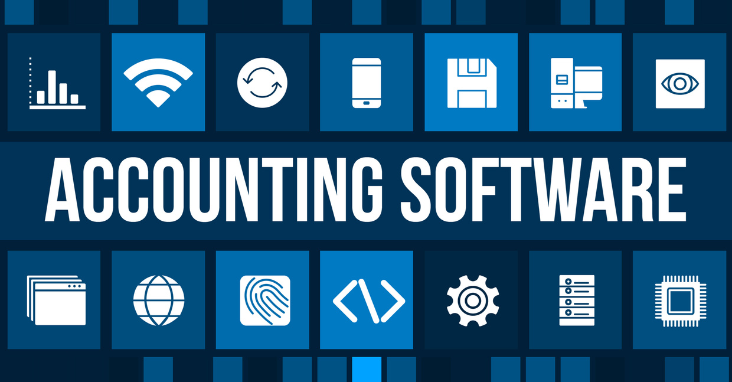
Software Tools for Automated Accounting
Modern software unlocks the full potential of accountants and finance teams. Let’s explore some of the top tools in the market:
Sage 50cloud
Sage 50cloud is a robust desktop accounting solution integrated with cloud functionality. It provides core accounting, invoicing, cash flow management, and even inventory management.
Why it’s useful: Sage 50cloud is known for its comprehensive features combined with the security and reliability of a desktop solution, but with the flexibility of cloud access. It’s particularly popular among medium-sized businesses.
Wave
Wave offers free accounting, invoicing, and receipt scanning for freelancers and small businesses. It’s an online-based platform, and its intuitive interface is great for those who might be new to the accounting process.
Why it’s useful: For startups or solo entrepreneurs working on a tight budget, Wave provides essential accounting tools at no cost. It’s straightforward to use, making it an excellent choice for non-accountants.
Zoho Books
Zoho Books is a part of the larger Zoho suite of business applications. It’s a cloud-based accounting software that offers features like invoicing, expenses tracking, inventory management, and more.
Why it’s useful: Zoho Books seamlessly integrates with other Zoho applications, making it a great choice for businesses already using the Zoho ecosystem. It offers a balanced set of features suitable for small to medium businesses at a competitive price.
Xero:
Known for its cloud-based system, making remote access a breeze.
Why it’s useful: Great for businesses that need remote access capabilities.
FreshBooks:
Best for freelancers and small businesses. Offers time tracking timely payments and invoicing.
Why it’s useful: Tailored features for solo entrepreneurs.
QuickBooks:
A popular choice for small to medium businesses. Offers invoicing, payroll, and reporting features.
Why it’s useful: Comprehensive features and user-friendly interface.

FAQs on Automated Accounting
Navigating the world of automated accounting can bring up a plethora of questions. It’s essential to get a clear understanding, especially when considering integrating such a system into your business operations. Here, we address some of the most frequently asked questions about automated accounting.
1. Will automated accounting replace accountants?
Absolutely not. While automated systems can handle repetitive and repetitive accounting tasks, and data processing, the strategic insight, expertise, and advisory role of human accountants remain irreplaceable. Automation empowers accountants by freeing them from mundane tasks, allowing them to focus on more value-driven activities like financial planning, business advising, and in-depth analysis.
2. Is automated accounting secure?
Yes, most modern automated accounting tools prioritize data security. They employ robust security measures like encryption, multi-factor authentication, regular data backups, and secure cloud storage. However, like with any software, it’s vital to regularly update and ensure best practices are followed to maintain data integrity and against data security breaches.
3. What’s the learning curve for these tools?
The learning curve to using automate accounting tasks often varies based on the tool and the user’s familiarity with accounting software. However, most automated accounting tools are designed with user-friendliness in mind. Many offer comprehensive tutorials, customer support, and user communities to help newcomers adapt swiftly. Remember, these tools aim to simplify processes, so they’re generally intuitive by design.
4. How expensive are automated accounting systems?
The cost spectrum for these systems is broad. Some basic tools, especially those tailored for freelancers or small businesses, might even be free. As features and capabilities increase, so does the price. It’s essential to evaluate your business needs and budget constraints to select a tool that offers the best value for your investment.
5. Can I customize the software to fit my business needs?
Many automated accounting tools offer customization options. Whether it’s integrating with other various software solutions your business uses, modifying reports, or setting specific rules for data processing, customization capabilities are often readily available financial reports now. However, the depth of customization might vary based on the software.
6. How does automated accounting handle errors or discrepancies?
While automated tools significantly reduce errors, they aren’t infallible. Most systems come with built-in error-checking mechanisms. They can flag discrepancies or unusual transactions for review, ensuring that potential issues are brought to your attention.
7. Will my data be backed up?
Most cloud-based automated accounting tools automatically back up data at regular intervals. This ensures that even in the event of unexpected issues like server failures or data breaches, your financial data can be recovered. However, it’s always a good practice to check the backup policies of the software you’re considering.
8. Can multiple users access the system simultaneously?
Yes, many automated accounting systems allow for multi-user access. This is especially beneficial for larger businesses where multiple departments or teams might need to input or access financial data. User permissions can typically be set to ensure data security and integrity.
9. How does automated accounting benefit small businesses specifically?
For small businesses, resources are often limited. Automated accounting can make business owners save time and costs, reduce errors, and offer real-time financial insights. These benefits can be invaluable for small businesses to maintain a competitive edge, manage cash flow effectively, and make informed business decisions.
10. Can I switch to automated accounting if I have years of data in traditional accounting formats?
Yes, most modern tools offer data migration features. This means you can import your historical financial data into the new system, ensuring continuity and a comprehensive financial view. Some software providers even offer support services to assist in this migration process.
Key Points:
- Automated accounting complements, rather than replaces, human accountants.
- Data security is a priority for most automated tools.
- Costs vary, but there’s likely a tool that fits every business’s needs and budget.
- Customization, error handling, backup, and multi-user access are typical features.
- Both small and large businesses can reap the benefits of automation, and transitioning from traditional systems is usually manageable.

Conclusion
As we journey through the 21st century, the infusion of technology into various facets of our lives and businesses becomes more pronounced.
It’s an exciting era, where the boundaries of what’s possible continue to expand. And within this technological renaissance, automated accounting emerges as a beacon of progress in the world of financial management.
Now, after delving deep into the intricacies of automated accounting, it’s evident that this isn’t just another fleeting trend. Instead, it’s a transformative force, poised to redefine how businesses handle their finances. From solopreneurs to sprawling enterprises, the benefits are tangible: unparalleled efficiency, pinpoint accuracy, timely insights, and the liberation of human capital from repetitive, manual tasks.
But beyond these tangible benefits, there’s a broader implication. Automated accounting paves the way for a more strategic approach to financial management. With the grunt work automated, businesses’ finance management accounting teams can focus on interpreting the data, understanding financial trends, and making informed, data-driven decisions. In an age where data is often termed ‘the new oil,’ automated accounting ensures businesses are equipped to refine this oil into actionable strategies.
Moreover, as the global business landscape becomes more competitive, the margin for error narrows. Mistakes, inefficiencies, or delays that might have been overlooked in the traditional accounting methods and process automation the past could now be the difference between success and stagnation. In this context, automated accounting isn’t just a luxury; it’s rapidly becoming a necessity.
The future, as they say, is automated. But it’s crucial to remember that automation isn’t about replacing the human element. It’s about augmentation. By leveraging the automated processes of accounting, businesses can harness the best of both worlds: the precision of technology and the strategic insight of human intellect.
So, as we stand at the crossroads, looking ahead to the future of financial management, one thing is clear: embracing automated accounting is not merely an option. It’s an imperative for those wishing to stay ahead of the curve, navigate challenges with agility, and drive their businesses towards sustained success.
Key Points:
- Automated accounting is a cornerstone of modern financial management, offering a blend of efficiency and strategic depth.
- It’s transformative, ensuring businesses, irrespective of their size, can navigate the financial landscape with precision.
- The fusion of technology and human insight paves the way for data-driven decision-making.
- In the competitive world of business, automated accounting emerges as a non-negotiable tool for success, marking the dawn of a new era in financial management.





